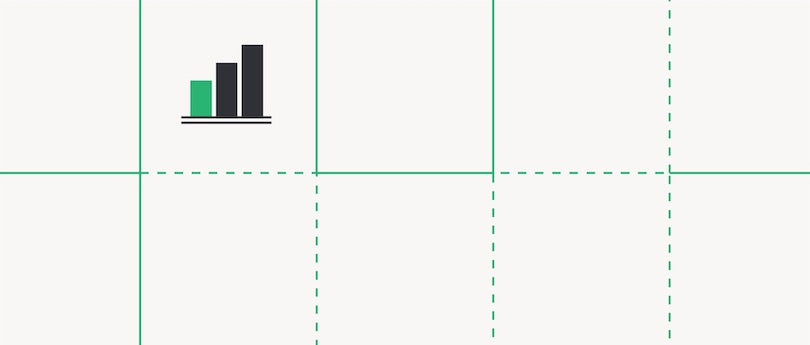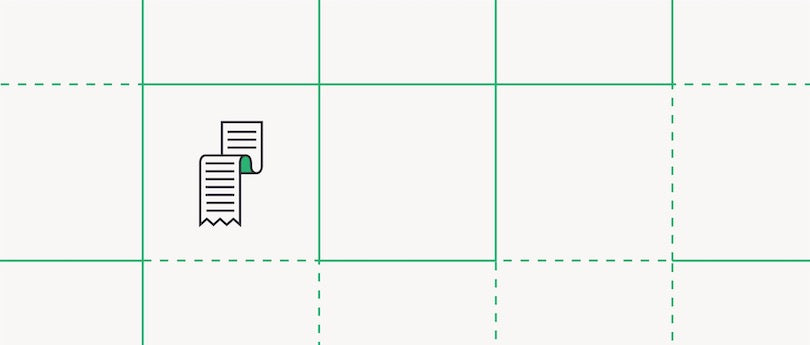There’s a well-known saying: “Give a person a fish, and he’ll eat for a day. Educate a person to fish, and also you’ll feed him for a lifetime.” However what if that man doesn’t know what to do with the fish as soon as he catches it?
If you perceive how small-business funds work, you’ll know what to do with “the fish”—in different phrases all the cash you’re making and spending. And understanding methods to deal with your funds correctly offers your small business a combating probability to outlive and develop.
On this information, we’ll have a look at important small-business finance expertise for profitable entrepreneurs, together with constructing finance, monitoring spending, and creating monetary statements which can be straightforward to grasp.
Separating your funds and limiting your legal responsibility

The primary and best, factor to do for your small business’s monetary well-being is to separate your funds. Retaining your private funds separate from your small business funds gives many benefits, from simplifying your accounting to defending your private property and different property.
Separating your funds has different benefits too. Calculating tax deductions, and total tax preparation, is way easier when your organization has its personal checking account. It’s additionally simpler to determine if that Wednesday afternoon lunch was with a consumer or a good friend when your private and enterprise receipts aren’t blended collectively. Even in case you can simply distinguish one set of bills from one other, sorting a pile of paper come tax season wastes beneficial time, and paying a chartered skilled accountant (CPA) to do it for you will be costly.
As your small enterprise begins to develop, you would possibly need to think about incorporating. When a enterprise incorporates, it turns into a authorized entity. Meaning if your small business ever faces monetary or authorized hassle, your private property, reminiscent of your property or a university fund in your youngsters, are, generally, protected.
It’s essential to know when to incorporate. When you make your organization a authorized entity whereas it’s nonetheless in its early phases, you’ll now not have the ability to declare any losses it incurs in your private taxes. On the similar time, the extra mature an organization turns into and the extra property it has, the extra paperwork that’s required to include it. In both case, count on the price of incorporating to be someplace between $1,000 and $2,000.
Selecting the best financial institution
Not all banks provide identical companies. Some have cell apps, for instance, some don’t. Some will tailor their companies round your small enterprise, whereas others can have a extra standardized method.
Company accounts are a little bit completely different from private accounts, so listed below are some issues you need to think about when selecting a financial institution for your small business:
- Does it provide on-line banking?
- What are its charges for enterprise transactions?
- What sorts of rates of interest does it have for enterprise loans?
- Can it give you a enterprise bank card?
- Are you able to add different individuals and permissions to your account as your small business grows?
Doing all of your banking at one establishment retains issues easy, however remember that it’s not obligatory. In case your most well-liked financial institution doesn’t have aggressive charges on loans.
Sorts of accounts
If you open a checking account for your small business, think about opening each a chequing and a financial savings account. The primary gives you a spot to handle your day-to-day income and bills, whereas the second can be utilized for setting apart cash for issues like taxes or future investments in your business.
Transaction charges
Enterprise financial institution accounts, like private accounts, come in numerous tiers that permit a sure variety of transactions for a month-to-month charge. Having thought of how your small business will obtain funds and what number of month-to-month purchases you’ll make by means of your account is useful info to know when deciding what sort of account to arrange.
For instance, in case you’re coping with a number of completely different distributors regularly, you’ll need to be sure you have a low (or no) transaction charge on purchases. You may also need to see in case your financial institution can give you an account with no day by day restrict on debit purchases.
Loans and features of credit score
Even in case you don’t want a mortgage or extra financing for your small business proper now, you would possibly sooner or later. So ask just a few questions up entrance concerning the financial institution’s lending necessities. Additionally ask about its rates of interest on loans, the phrases of its enterprise loans and features of credit score, and what your small enterprise would want to qualify for a mortgage.
Enterprise bank cards
A bank card is an effective way to construct your small business’s credit standing, supplying you with a greater probability of securing loans and low rates of interest sooner or later. Having an enterprise bank card additionally can provide you entry to rewards, fraud safety, and prolonged warranties on purchases.
The best way to create a finances

Because the saying goes, in case you fail to plan, you propose to fail. You’ll by no means have the ability to see each bump within the monetary highway forward, however you'll be able to keep away from surprises and hold your small business wholesome by constructing a strong finances and protecting observe of your cash.
Making a pattern finances gives you a normal thought of what to anticipate in your first months and years of operation. Over time, your budgets will turn into simpler to create, and also you’ll get higher at forecasting bills and revenues all year long. For now, let’s have a look at the varieties of issues to incorporate in your preliminary finances.
Bills
A good way to start out your finances is by writing out an inventory of each potential merchandise you suppose your small business will want—from the expertise used to create your stock to the day-to-day objects in your workplace. A fast Google seek for examples of budgets in your business will help you determine something you may need missed.
One-time bills
One-time bills often are big-ticket objects you purchase as soon as (or typically each few years). This may embody laptops, equipment, and workplace furnishings. It may possibly additionally embody companies like brand design or web site improvement.
Fastened bills
Fastened bills are prices you reliably can count on to pay each month, and that don’t fluctuate an excessive amount of in worth. This may embody lease, insurance coverage, web service, web site internet hosting, cellphone payments, and software program subscriptions.
Variable bills
Variable bills fall someplace between mounted bills and one-time bills—they happen greater than as soon as however fluctuate in quantity and are paid at irregular intervals. This would possibly embody supplies to make your merchandise, advertising and marketing prices, enterprise journey, an accountant to file your taxes, or bank card processing charges.
Product pricing technique
Arising with the proper worth in your merchandise is a vital a part of your finances. Listed here are a few of the elements to think about when setting your worth.
Price of products
The hard costs of the items you’re selling are often easy. For instance, in case you’re operating a hand-printed T-shirt store, your materials prices is perhaps $eight per T-shirt and $Three for ink. However there’s extra to setting a worth than including up laborious prices.
Labor
Do you pay individuals to make your product or ship your service? That price must go in to your price of products bought. Even in case you haven’t employed any employees but, make sure you embody the worth of your personal labour that will help you consider the effectivity of your small business. (If your personal hourly “wage” finally ends up being unsustainably low, your small business will want tremendous tuning.) It may possibly additionally offer you a great sense of when it’s time to start out outsourcing duties to another person.
Packaging
If your small business includes transport product to clients, packaging and unboxing will play a major position in how a buyer experiences your model. Your package deal is an extension of your product, so that you’ll must issue its price into the price of items bought.
Transport
Transport is one other key piece of getting your product to clients, and failing to estimate its price appropriately can throw off your finances. Issues like measurement, weight, location, and pace all have an effect on your shipping costs. Go to your native submit workplace for assist estimating your transport.
Once more, don’t neglect to issue your personal time into your transport prices. You technically would possibly have the ability to provide transport inside 5 days, however packaging up product and operating to the submit workplace each day isn’t an environment friendly use of time and can make transport extra expensive by taking you away from different duties.
Internet buyers count on to see a transportation charge added on the finish of their buying course of, however hold this price affordable. Clients confronted with an exorbitant transport price could very properly abandon their cart and never come again.
Processing charges
When you settle for bank cards, you possible pay a hard and fast processing charge per transaction in addition to an extra charge of round 3% of the order worth. These fees fluctuate primarily based on the processing service you employ, so store round for one which is smart primarily based in your order quantity. In case your retailer goes to simply accept worldwide orders, remember that cost coming from exterior your property nation would possibly incur larger charges in your finish.
Harm
Generally objects get broken, whether or not on their option to you or on their manner from you to a buyer. Hopefully the expense of changing these items can be a minimal price for you, but it surely’s essential to issue an anticipated quantity of broken stock into your pricing. A Google search gives you a tough thought of what’s frequent in your sort of enterprise. Multiply the typical proportion of loss in your business by the price of your product to provide you with a loss estimate, then common that estimate into your pricing.
Returns
You might or could not select to simply accept returns. When you promoting artisan crafts, for instance, returns may not be for you. When you do select to simply accept returns, you are able to do considered one of three issues:
- Cost a separate “restocking charge” to recoup a few of the loss
- Increase your costs barely to account for losses from returns
- Depart your costs the identical, and belief {that a} beneficiant return coverage will imply elevated gross sales
Take into account you’ll additionally incur the price of bank card chargebacks for fraudulent or disputed transactions.
Model and goal market
The way you current your model will contribute on to your pricing technique. Are you a luxurious enterprise promoting merchandise at a premium? Are you a reduction store going after the low finish of the market? The way in which you place your small business is a much less tangible issue of setting your worth, but it surely’s undoubtedly an element.
Generally, elevating costs can, counterintuitively, enhance gross sales by conveying high quality. Different instances, the bottom worth will at all times win. Know your market and worth accordingly.
Competitors
There almost definitely can be different enterprise on the market providing services or products just like yours. Analysis a few of them to get a way of how they’re pricing their objects. You would possibly need to provide a lower cost than your competitors to draw extra clients, or chances are you'll need to use your model to raise the worth of your product over theirs.
Projecting income
To start with, projecting gross sales is an element analysis, half educated guess. The longer you’re in enterprise, the higher you’ll be at predicting these numbers and understanding when your peaks and valleys can be all year long. Like bills, your gross sales will fluctuate by business.
If your small business began as a facet hustle, chances are you'll have already got some preliminary gross sales information. Even just a few numbers will help you determine which of your merchandise are bestsellers and what instances of yr your gross sales can be excessive or low.
You probably have no information to start out with, you continue to can collect helpful info by speaking to different enterprise homeowners in your business (in case you don’t know any, your accountant would possibly) and performing some analysis on-line. Chances are high, with a little bit digging, you’ll have the ability to discover some tough numbers on the extent of progress to count on in your first yr and which months will do the heavy lifting when it comes to gross sales.
Understanding accounting, bookkeeping, and report protecting

On this part, we’ll have a look at three areas integral to protecting your organization’s monetary well being on observe.
Bookkeeping is the day-to-day monitoring of your small business’s transactions, reminiscent of gross sales made and bills paid. Accounting interprets these transactions over longer durations of time. It allows you to see if your small business is worthwhile, which elements of your small business are doing properly (or not so properly), the worth of your small business, and your money stream. And report protecting is the group of all of the paperwork that make bookkeeping and accounting potential.
Let’s look in additional element on the variations between every of those monetary duties, why you want them, and methods to handle them in a manner that’s proper for your small business.
Accounting
There are two accounting strategies small companies can use—money and accrual. You’ll want to select a system earlier than the tip of your first tax yr, after which follow it yearly following.
Money versus accrual
Money accounting information transactions solely when cash adjustments fingers. So in case you bill a consumer, you wouldn’t acknowledge that income till their cost clears. In accrual accounting, gross sales, purchases, and bills are acknowledged as quickly as they’re billed.
Which technique do you have to select? Money accounting is easier to trace, as a result of transactions are recorded when cost is obtained or made. There’s no want to trace accounts receivable or payable, and also you at all times have a transparent thought of precisely how a lot cash you will have. In different phrases, your books will at all times match your financial institution accounts.
Since accrual accounting information accounts payable and receivable, it may be tougher to trace money stream, but it surely additionally helps you higher forecast your small business’s funds for the months and years to come back.
Typically, you'll be able to select the system that works greatest for you, however there are exceptions. In the US, a enterprise is required to make use of the accrual technique if it carries stock or generates an earnings of greater than $25 million per yr. In Canada, any earnings from self-employment (except it’s from farming, fishing, or self-employed fee) have to be recorded utilizing the accrual technique.
When you need to discuss to a CPA
If your small business remains to be extra of a facet hustle, or if its funds are easy, you possible can skip enlisting the assistance of a CPA for now. There are many small-business finance assets on-line you'll be able to reference.
But when your small enterprise begins overshadowing your day job, speaking to a CPA is very suggest to be sure you’re on observe. CPAs don’t simply file your taxes—additionally they will help you with monetary technique, tax planning, lease negotiations, monetary reporting, tax compliance, and treasury administration.
A CPA can have a look at your business plan and finances, assist make clear something you may need missed, and get you arrange with a bookkeeping course of tailor-made to your business.
Selecting a CPA is just like selecting a financial institution. They should be the proper match for you and for your small business. A good way to get suggestions for CPAs is by asking different enterprise homeowners and belief in your business. Make sure that to speak to the CPA one-on-one to get a way of whether or not or not they’re the proper CPA for you.
Your CPA will help you keep away from surprises down the road by serving to you determine how a lot tax you should accumulate and put aside, which bills to trace and deduct, and which authorized construction your small business ought to use.
Bookkeeping

Bookkeeping is the monitoring of an enterprise’s income and bills. It means that you can hold tabs in your firm’s monetary well being and makes your CPA’s job simpler come tax time. Principally, bookkeeping includes getting into your gross sales and bills right into a spreadsheet and submitting your receipts as a backup.
If you wish to safe financing for your small business sooner or later sooner or later, protecting your books updated will help bolster a mortgage utility or funding pitch. Nicely-managed funds and clear information permit potential lenders and buyers make real looking projections of your organization’s monetary well being and offers them confidence to put money into you.
Nicely-managed books additionally assist your CPA benefit from all eligible tax deductions, and catch banking errors in a well timed method, after they’re simpler to reconcile. However the greatest profit to protecting on prime of your bookkeeping is at all times having a transparent image of the place your small business stands financially within the second. Nicely-kept books can provide you a way of the place your small business’s excessive and low factors can be over the course of the yr. They'll present you in case your packaging prices are too excessive, or in case you’re overspending on advertising and marketing.
Monitoring your books means that you can see in actual time what’s working properly and what wants tweaking.
The best way to get began with bookkeeping
Now that why you should keep on prime of your bookkeeping, let’s have a look at methods to do it.
Step 1: Select an accounting technique:
There are two varieties of bookkeeping techniques: single-entry and double-entry. Deciding which system to make use of is dependent upon how difficult your funds are.
Single-entry
If your small business is small and also you’re not making a number of transactions, single-entry is the only option to hold your books. On this technique, entries are recorded a single time, marked as both an enter (income) or an output (bills), whereas issues like stock and capital are tracked extra casually. Single-entry doesn’t provide all of the checks and balances of double-entry, however in case you’re doing your personal bookkeeping, that is most likely the system to decide on.
Double-entry
With the double-entry system, each transaction is entered into your books twice. It’s extra difficult than single-entry, but it surely supplies extra details about your small business. Not like single-entry, double-entry bookkeeping tracks your property and liabilities along with income and bills and has the checks and balances wanted to scale back errors. Double-entry bookkeeping additionally offers you the knowledge wanted to create detailed monetary statements displaying which areas of your small business income is flowing into and out of.
Double-entry is a extra strong system. When you’re hoping to get a enterprise mortgage or carry on buyers, or in case you’re hiring employees and carrying a big stock, it’s extremely advisable you employ double-entry.
Double-entry is a little bit difficult, so let’s stroll by means of an instance. Say you run an internet t-shirt store. You order clean t-shirts from a provider, display screen print them your self by hand, after which ship them to your clients. If you get a cargo out of your provider, you'd enter that expense debit to your money account, and as a credit score to your product account. When the credit score and debit columns of your ledger are added collectively, they need to equal zero. That is what it means when somebody refers to books being “balanced.”
Step 2: Hold good information
At tax time, the burden is on you to point out the validity of your whole bills, so protecting supporting paperwork like receipts and invoices is essential.
The IRS accepts digital information, so in case you use a cloud-based system like Dropbox, Evernote, or Google Drive to add your paperwork, you’ll by no means should cope with smudged receipts. You can also use a receipt-tracking app, like Shoeboxed.
We’ll discuss extra about recordkeeping later on this information.
Step 3: Enter all of your transactions someplace
Bookkeeping includes protecting observe of your funds on a spreadsheet. Whether or not you employ Excel, on-line accounting software, or good old style pen and paper, you’ll want to decide on a system that makes it straightforward so that you can enter each sale and buy. At minimal, you should observe quantities, dates, distributors, and purchasers.
Step 4: Categorize your transactions
Categorizing your transactions is the final piece of the bookkeeping puzzle.
The primary and easiest a part of categorizing transactions is one you’re possible aware of: credit and debits. You’ll additionally must categorize your receipts by “account.” Accounts assist add extra context to your bookkeeping.
Accounts usually are damaged down into 5 sorts:
- Belongings. An asset is one thing your organization owns, reminiscent of money, a constructing, a pc, stock, and even mental property. Principally, property are something your organization may promote if it wanted to.
- Liabilities. The commonest type of enterprise legal responsibility is debt. So you probably have a enterprise mortgage, this is able to go within the legal responsibility class. Accounts owed would additionally depend as liabilities.
- Fairness. Fairness is any money funding or drawing made by the proprietor of an organization.
- Income. Income is any earnings obtained from the sale of products or companies.
- Bills. Bills are any cash paid out for the on a regular basis operating of your organization. This might embody web service, printing provides, and workplace house rental. Bills are completely different from property as a result of they often maintain no potential for resale, or are consumable (like workplace stationery).
There’s a lot of flexibility in the way in which monetary transactions will be categorized in your books. An important factor is to resolve on a system and follow it constantly. When you haven’t executed this earlier than, consulting an expert bookkeeper could make the duty of categorizing your transactions run easily and likewise assist guarantee your classes are consistent with these of different companies working in the identical house as you.
Relying on how huge your small business is and the way difficult your monetary wants are, you will have a few choices for the way you deal with your bookkeeping.
Do-it-yourself (DIY) bookkeeping
If your small business is extra of a facet hustle, in case your funds are tight, or in case your bookkeeping wants are easy, it’s price contemplating the DIY method.
That mentioned, even in case you plan to maintain your personal books, it’s a good suggestion to seek the advice of a CPA earlier than you begin. It’s potential to make errors with even the only bookkeeping, and people errors may price you at tax time. Cash spent getting a CPA that will help you arrange your books is cash you’ll save paying a CPA to kind by means of and proper errors later.
When taking the DIY method, you should utilize a primary spreadsheet to trace your funds, or you should utilize on-line accounting software program like Quickbooks, Xero, or Wave.
Utilizing a spreadsheet is free, however you’ll should work a bit to create monetary stories. On-line accounting software program has a month-to-month price, however it may well create stories for you.
Outsourcing your bookkeeping
If your small business is a bit more difficult, or has moved out of the side-hustle stage, it is perhaps time to outsource your bookkeeping. We suggest hiring another person to do your bookkeeping if:
- You don’t have the time to maintain on prime of it
- Your funds have gotten too difficult so that you can confidently keep your books
- Your efforts could be higher spent engaged on a special a part of your small business
- You’ve missed deductions at tax time or have by accident stored your books incorrectly previously
If you outsource your bookkeeping, you'll be able to rent a contract bookkeeper, a bookkeeping agency, or an internet bookkeeping service.
Hiring an area bookkeeper is an efficient choice if most of your information are on paper or in case you really feel extra comfy assembly together with your bookkeeper face-to-face. Hiring an internet service, like Bench, might be the proper alternative for your small business in case you choose to work on-line and your small business isn’t cash-heavy.
At Bench, our bookkeepers do your books for you. We create the mandatory month-to-month monetary statements you want—all of that are accessible on-line—and offer you the whole lot you’ll want handy to your CPA at tax time.
Retaining your small business information so as

With out information—the paperwork that present what your organization has been spending and incomes over the course of a yr—there’d be nothing for bookkeepers or accountants to do.
Data are legally required as proof that the knowledge included in your tax returns is correct. To keep up complete information, you’ll must hold:
- Receipts
- Financial institution and bank card statements
- Payments
- Canceled checks
- Invoices
- Proof of funds
- Monetary statements from an internet service or your bookkeeper
- Earlier tax returns
Relying on the place you reside and the kind of enterprise you run, there is perhaps different information you’re legally required to maintain or extra tax kinds you should file. Speak to a CPA at the start of your tax yr to get a transparent thought of how greatest to keep up your information.
A superb normal rule is: if doubtful, hold it. It’s loads simpler to throw out a receipt later when you’re positive you don’t want it than it's to frantically dig by means of your recycling.
The best way to retailer your information
The great previous shoebox is a traditional trope for receipt and report storage, but it surely’s not the simplest system. An accordion folder is a step up, however accidents nonetheless can occur. Paper receipts will be broken by water, fireplace, or a loyal (if excitable) canine good friend. Paper also can fade over time, particularly money register receipts, and the very last thing you need is to open your shoebox at tax time and discover a number of clean scraps.
There are myriad companies out there to trace and retailer your paperwork digitally. Taking photographs of receipts and importing them, together with digital payments and invoices, right into a Dropbox or Google Docs folder is the net model of protecting an accordion folder. There are also a lot of on-line companies designed particularly to assist make your report protecting as painless as potential:
- Shoeboxed means that you can scan receipts and digitally organizes their info . It additionally has a characteristic that auto-generates expense stories.
- FileThis routinely gathers info from digital paperwork (like payments), saving you the difficulty of importing them.
- Expensify allows you to scan and electronic mail receipts and digital paperwork to create easy expense stories.
Creating and studying monetary statements

Monetary statements are stories created out of your books. They’re an effective way to verify in on how your small business is doing, make predictions about upcoming income and bills, and resolve when to put money into rising your small business.
Monetary statements might sound intimidating at first, however when you get a deal with on them you’ll love the peace of thoughts that comes with having a powerful grasp of your small business’s funds.
Steadiness sheets
A steadiness sheet is a snapshot overview of your funds at any given time limit. It appears one thing like the net banking dashboard web page, butut as an alternative of displaying your checking and financial savings accounts, the snapshot reveals your organization’s property, liabilities, and fairness.
Basically, a steadiness sheet reveals the system Belongings = Liabilities + Fairness.
Earnings assertion
An earnings assertion takes a more in-depth have a look at—you guessed it—your small business’s earnings, breaking it down into bills and income, then additional breaking these quantities down into particular person line objects.
Earnings statements have a look at issues like:
- Income: how a lot cash you introduced in promoting items (like a T-shirt)
- Price of fine bought: the sum of money you spent on these items earlier than promoting them
- Operating expenses: different prices related to operating your small business, like electrical energy, web, advertising and marketing, and enterprise playing cards.
You should utilize the above values to calculate your gross revenue (Income - Price of Items Offered) and your web revenue (Gross Revenue - Working Bills).
Gross profit reveals you the way a lot earnings you’re bringing in on particular objects. In case your gross revenue is low, you would possibly need to think about rising the worth of every merchandise bought.
Internet revenue tells you the way a lot earnings your small business is bringing in after bills, and offers you an image of the general profitability of your small business. It’s a manner of factoring all the different bills your small business incurs into the price of your product. In case your web revenue is low, you would possibly want both to lower your working bills or enhance the price of your product.
Whether or not you’re going it alone or hiring a monetary skilled, it at all times helps to hunt recommendation from different profitable entrepreneurs in your subject or to seek the advice of with a great CPA.
Realizing methods to observe and handle your funds gives you peace of thoughts that greater than makes up for any challenges chances are you'll face constructing the talent. And the extra you study to handle cash, the better and extra intuitive it would turn into.
Comments
Post a Comment